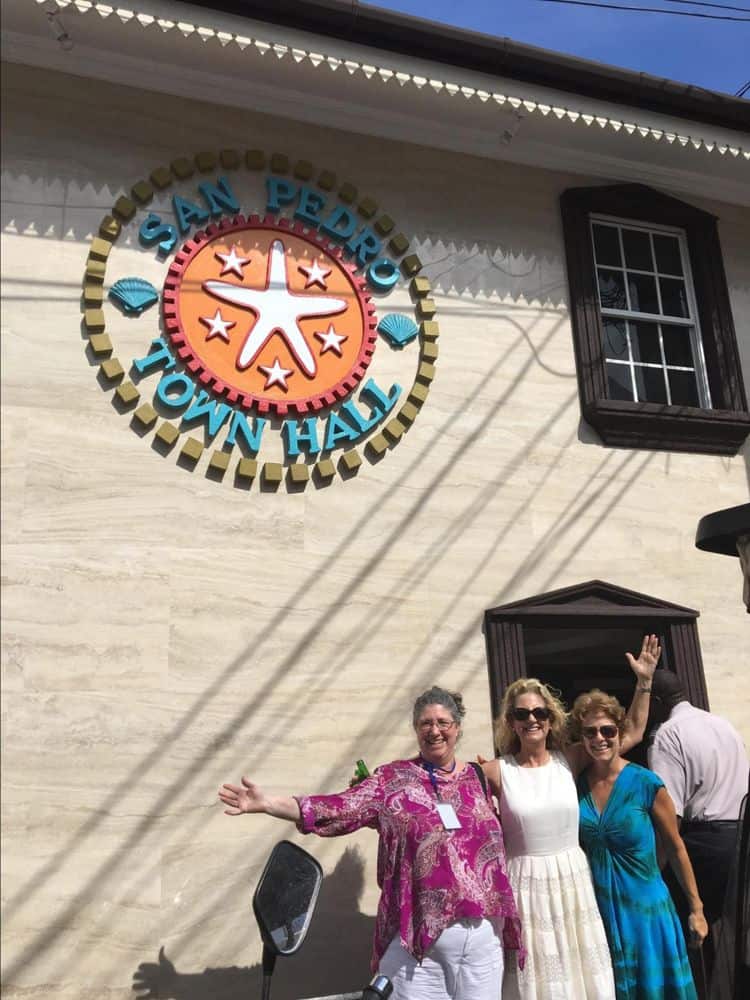This article was published in the Escape Artist Weekly Newsletter on January 30, 2018. If you would like to subscribe to the newsletter, please click here.
If you have ever identified the right investment property only to realize your bank account is missing a few zeros to make it happen, you’re in luck. With the recent 2015 revision of the JOBS Act, it has become easier for American investors, both accredited and non-accredited, to participate in pooled-resource real estate deals.
So, what exactly is the JOBS Act? The JOBS Act (Jumpstart Our Business Startups), was originally signed into law by President Obama in 2012 with the intent of easing the securities restrictions for small businesses. In 2015, this Act was revised to include non-accredited investors, opening the doors for many people.
By the way, according to the U.S. Securities and Exchange Commission (SEC), an “accredited investor” is defined as a single who has an income of $200,000+ over the past two calendar years, a couple with an income of $300,000+, and/or someone who has a net worth of at least $1 million excluding his/her primary residence. You may also start to hear the term “sophisticated investor,” meaning the investor has sufficient knowledge and understanding of financial matters to make an educated decision pertaining to an investment.
Crowdfunding started to become more mainstream because both accredited and non-accredited investors were able to invest in average startups and early stage companies, whereas in the past, investing was restricted to only accredited investors. Clarification as to what was a security and what wasn’t quickly became defined.
Websites such as GoFundMe (no return is promised to investor) and Indiegogo (rewards investors based on pledge amounts) became popular methods for investors to fund projects they believed in. Typically, these sorts of crowdfunding (donation and rewards-based) are not securities, but are rather regulated by the Federal Trade Commission. Where the SEC gets involved is when equity is exchanged for shares in a private company and capital is raised in the form of a loan.

The SEC continues to limit the total amount that someone can invest in securities-based crowdfunding projects based on their annual income, and for many investors, that threshold is never met. To see the specific limitations, please refer to this chart distributed by the SEC: https://www.sec.gov/oiea/investor-alerts-bulletins/ib_crowdfunding-.html
Coming back to the real estate example, this 2015 revision to the JOBS Act meant improved methods for structuring pooled real estate investments for both accredited and non-accredited investors. A real estate syndication is a fancy way of saying pooled money from investors to invest in a single fund for the purpose of purchasing investment real estate with the expectation of a return. There can be multiple properties in a single syndication or a single property, all dependent on what the sponsor assembles.

The “sponsor” is the individual who identifies the opportunities, identifies the investors, assembles the deal, and then manages the fund. The sponsor is typically compensated in one mode or another, including options such as profit sharing, acquisition/due diligence fee, asset management fee, property management fee, etc.
There is a magnitude of ways to raise capital, and it truly depends on how the sponsor wants to market the opportunity and whether they want to accept accredited vs. non-accredited investors. Because each syndication is structured differently, it is highly advisable that you take the time to review the syndication’s business plan to see if the partnership is right for you.
Below, we have identified a few of the most popular syndication models:
- Rule 506(b) of Regulation D allows for up to 35 non-accredited investors, but they must be “sophisticated investors.” There is an unlimited number of accredited investors that can be taken. General solicitation cannot be done.
- Rule 506(c) of Regulation D allows only accredited investors to invest in the opportunity. Reasonable measures must be taken to prove the investor is accredited. Advertising can be done freely.
- Rule 504 of Regulation D states that up to $5 million can be raised within a 12-month period, however, general solicitation cannot be done. The entity has to file Form D.
- Regulation A+ (Reg A+) is one of the most popular because there are no restrictions on the number of non-accredited investors, but it is also one of the more expensive to maintain. It is often referred to as a “mini-IPO (Initial Public Offering)” because of the ongoing compliance and disclosure documents needed to register with the SEC. It has two different tiers of offerings:
- Tier 1:
- Can raise up to $20 million in a 12-month period
- No investor restrictions
- Can feely advertise
- Tier 2:
- Can raise up to $50 million in a 12-month period, and investors can only invest up to 10% of their net income.
- Can freely advertise
- Tier 1:
- Regulation Crowdfunding (CF)
- Primarily geared towards newer companies doing smaller investments, since the maximum amount to raise is $1 million, open to both accredited and non-accredited investors. The investment must be offered through a registered broker.

The syndications are typically assembled via a Limited Partnership (LP) or Limited Liability Company (LLC) under one of the laws above. 
Identifying a noteworthy syndication can be tricky if you’re not actively involved in the real estate investment world. Good news is that we’ll be hosting a live webinar with the notable syndication attorney, Mauricio Rauld, on Tuesday, February 13, at 7pm EST/4pm PST. Please join us if you’d like to learn how to become a syndicator or to hear about opportunities to participate in international syndications.
Even if you are NOT able to join, please still register to receive the recording.
This article was published in the Escape Artist Weekly Newsletter on January 30, 2018. If you would like to subscribe to the newsletter, please click here.
Contact Author
"*" indicates required fields
Stay Ahead on Every Adventure!
Stay updated with the World News on Escape Artist. Get all the travel news, international destinations, expat living, moving abroad, Lifestyle Tips, and digital nomad opportunities. Your next journey starts here—don’t miss a moment! Subscribe Now!










